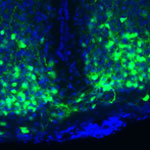
Springing clocks forward by an hour this Sunday, traveling across time zones, staring at a computer screen late at night or working the third shift are just a few examples of activities that can disrupt our daily, or circadian, rhythms. These roughly 24-hour cycles influence our physiology and behavior, and they’re driven by our body’s network of tiny timekeepers. If our daily routines fall out of sync with our body clocks, sleep, metabolic and other disorders can result.
Researchers funded by the National Institutes of Health have spent decades piecing together the molecular mechanisms of our biological clocks. Now, they’re building on that basic knowledge to better understand the intricate relationship among these clocks, circadian rhythms and physiology—and ultimately, find ways to manipulate the moving parts to improve our modern-day lives.
Continue reading this new Inside Life Science article

